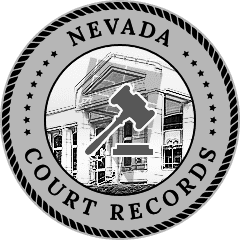Nevada State Courts
The state judicial system of Nevada features many different trial courts which have differing levels of jurisdiction and some have specific subject-matter purposes. There are also states of appeals, including a state supreme court for the cases which are escalated from trial courts. A federal district court is situated within the state, which can be the point of origin for federal cases.
The majority of trials start in the Nevada District Courts. These courts have general jurisdiction over their allocated district. These can deal with larger federal and civil cases. Two of the district courts have family divisions which cater for divorce, adoption and other family-related trials.
There are also Justice Courts within the state, these have the jurisdiction to deal with some small claims and cases that are less than $10,000 in dollar value. There are thousands of these “Small Claims” each month in Nevada. Some of the cases from these courts end up in the District Courts. Traffic violations and minor issues can fall under the Justice Courts’ jurisdiction.
It is the duty of civil courts to hear cases where the party in question is looking to claim a dollar sum of over $200,000.
| Court Name: | Nevada Supreme Court |
| Address: | 201 South Carson Street, Suite 201 Carson City, NV 89701-4702 |
| Phone: | (775) 684-1600 |
| Website URL: | https://nvcourts.gov/supreme/ |
Intermediate and Supreme Courts
Nevada has one of the newest intermediate courts in the USA. The Nevada Court of Appeals was established in 2015. Many court cases that get escalated and appealed from the district courts end up at the appellate court, the court of appeals.
The court of last resort in the state is the Nevada Supreme Court. When there are significant legal contests that are not dealt with by courts lower down the judicial system, the Supreme Court steps in.
Types of Courts in Nevada
How to Find Nevada Court Records Online
You can use our online search tool in order to find the court records you are looking for. Nevada’s Open Court Records Act is over 100 years old and it protects the rights of the citizens when it comes to their access to these records. Local or state government records should be openly available to the public to see and to copy in the interest of transparency.
Our simple search function allows you to see a number of details about court records and other police records such as arrest warrants, mugshots, plea and sentencing details. There is a wealth of information out there for those who want to get the full background. All of this is protected by your civil rights in America.
Most modern cases have the information digitized straight away. However, some of the historic cases may not yet have been digitized and they could require you to contact a specific court for details dating back decades.

